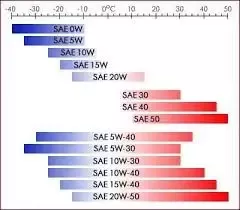Engine oil itself does not typically make noise. However, its condition and level can indirectly affect engine sounds. Here’s how:
- Lubrication: Engine oil lubricates moving parts, reducing friction and preventing wear. Proper lubrication ensures quieter operation. If the oil level is low or the oil is old and degraded, friction increases, leading to potential noise.
- Viscosity: The viscosity (thickness) of oil matters. Thin oil (low viscosity) may not provide sufficient cushioning, causing more noise. Thick oil (high viscosity) can strain the engine and affect performance.
- Oil Pump Noise: The oil pump circulates oil through the engine. If the pump is damaged or worn, it can create noise. Regular oil changes help maintain a healthy pump.
- Hydraulic Lifters: Some engines have hydraulic lifters that rely on oil pressure. Dirty or insufficient oil can cause lifter noise (tapping or ticking).
- Timing Chain/Belt: Oil lubricates timing chains or belts. If they become loose or damaged, they may produce noise.
- Valve Train: Proper oil flow to the valve train (valves, camshaft, rockers) is crucial. Inadequate oil supply can lead to tapping sounds.
- Oil Filter: A clogged oil filter restricts oil flow. Change the filter during oil changes.
- Oil Additives: Some additives claim to reduce engine noise. However, consult your vehicle’s manual before using them.
Remember to follow the manufacturer’s recommended oil change intervals and use the right oil type for your engine. Regular maintenance ensures a quieter and healthier engine.
Read More: What Does Low Engine Oil Sound Like?


